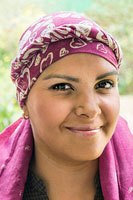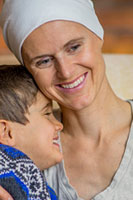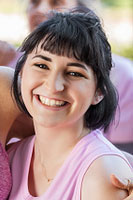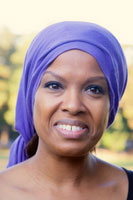
“I think that perhaps if had tried to make a decision about whether I wanted to know if I had an altered gene or not at the same time as my diagnosis, it would have been a little bit too much. It was a bombshell to find out that I had cancer in the first place. I had a manic couple of months after first being diagnosed - there's just so much going on. But since then, I've had time to think about things like genetic testing. I have thought about if a genetic test result did come back positive, what would I do about it? When the time comes and if I do have the test done, I'll know what I want to do. I've had time to think about it.”
Katie, age 28 when diagnosed.








